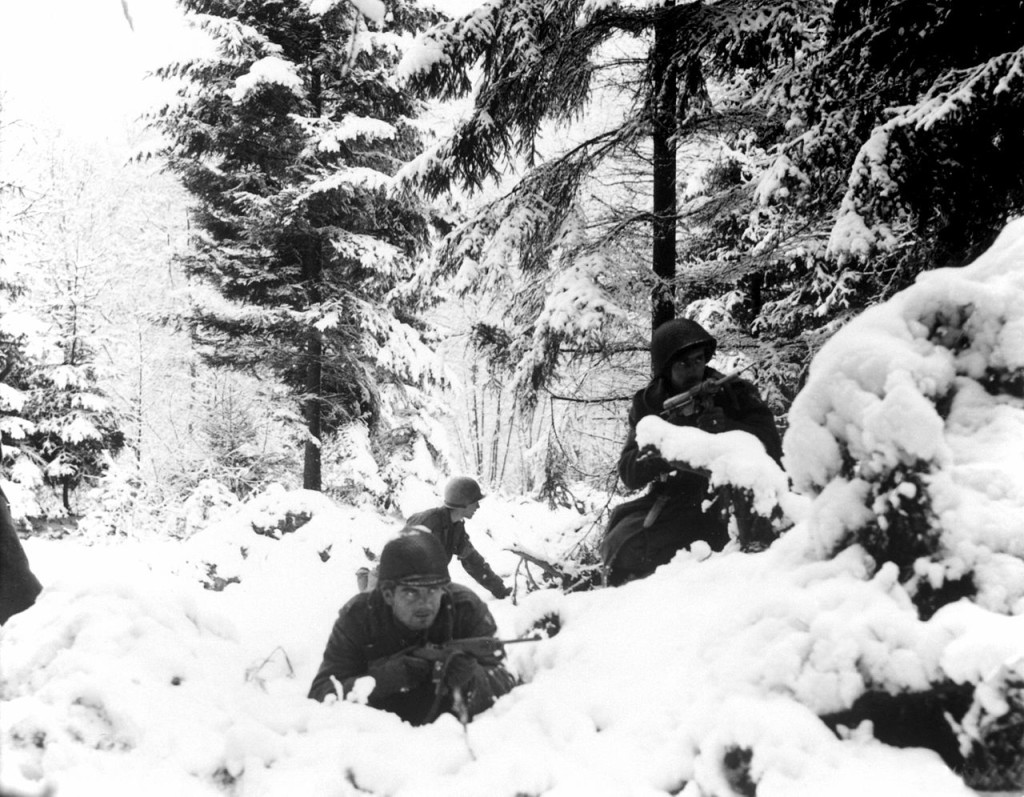(W)Archives: Patton’s Christmas Prayer and the Reality of War

In the Christmas season many people think of the famous Christmas truce that in 1914 briefly interrupted Western Europe’s slide into industrial-scale slaughter. However, every day that followed right up until November 11, 1918 was characterized by carnage. Thus, while the Christmas truce was a laudable event, it was in no way representative of World War I.
War on the Rocks is about understanding war and the international system as it is. Accordingly, at this time of year our thoughts turn not to the Christmas truce but to the prayer that General George S. Patton disseminated to his Third Army in December 1944 during World War II. This famous Christmas prayer is available in facsimile at the Official Website of General George S. Patton, Jr.
The prayer actually dates from December 8, 1944. The Third Army’s headquarters was in Nancy, France, suffering under seemingly ceaseless rain that was impeding operations against the Germans. Exasperated, Patton called his Chaplain, James H. O’Neill and asked for a prayer that would make the rain stop. O’Neill came up with the following:
Almighty and most merciful Father, we humbly beseech Thee, of Thy great goodness, to restrain these immoderate rains with which we have had to contend. Grant us fair weather for Battle. Graciously hearken to us as soldiers who call upon Thee that, armed with Thy power, we may advance from victory to victory, and crush the oppression and wickedness of our enemies, and establish Thy justice among men and nations. Amen.
Pleased with O’Neill’s work, Patton agreed to the addition of his personal Christmas greetings and ordered a staggering 250,000 of the prayers printed and distributed to his men. Accounts vary, but it seems that this distribution took place over the next couple of weeks. Meanwhile, the rains abated and the Germans launched the Ardennes Offensive, better known as the Battle of the Bulge. For a time, the 101st Airborne Division was cut off in the Belgian town of Bastogne. Patton’s Third Army, operating farther to the south, swiftly moved into action to help blunt the German offensive. At least some of Patton’s troops received their copies of the prayer on December 22, just as they were launching the relief of Bastogne in cold but otherwise perfect weather. After it was all over, Patton decorated Chaplain O’Neill for his excellent work.
While there are serious questions about the ethics and constitutionality of using prayer as a force multiplier, Patton’s prayer is a better symbol of the experience of war than is the Christmas truce of 1914. First, its language implicitly recognizes the reality that war is “battle” and that armies hope to “advance from victory to victory” in the course of which they will “crush” their “enemies.” Second, it implies the only justifiable reason for the foulness that is war: to end “oppression and wickedness.”
In a world in which both oppression and wickedness remain, we could do worse than to take a moment to consider the acknowledgement of the realities of war contained in Patton’s Christmas prayer.
Mark Stout is a Senior Editor at War on the Rocks. He is the Director of the MA Program in Global Security Studies and the Graduate Certificate Program in Intelligence at Johns Hopkins University’s School of Arts and Sciences in Washington, D.C.

